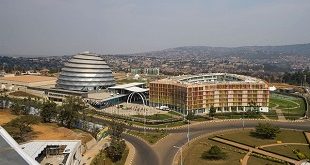
By Independent Team
Kyanjo is not the first to warn of war if the 2011 elections are mishandled.
On April 27, 2009, the Chairman of the Progressive People’s Party (PPP), Jaberi Bidandi Ssali, who is former Museveni campaign strategist and confidante, wrote an open letter to Museveni warning of rebellion.

In it, he said: ‘Judging by what has been happening during the by-elections, which have included intimidation, beating of voters and stuffing of ballot boxes perpetrated especially by your NRM, the country is likely to experience the same if not worse chaos come 2011! Mr. President, we see your unwillingness to amend the electoral laws as part of a deliberate scheme to rig the 2011 elections so that even if, ultimately, some amendments are stampeded through Parliament, it will be logically impossible to implement them because of time and resource constraints.
I can assure, Your Excellency, that that will be a recipe for another spate of bloody chaos in the country. You might have equipped the army, militarized the police and the civil service and misused the poor peasants’ children by training them into Kiboko Squads to beat the very people you are mandated to protect but, this time the price in human blood and subsequent skulls could be much more than the country has seen before.
In stating so, I am not a harbinger of doom, but one only needs to feel the political pulse of the people of Uganda today and place it in focus with our past and what recently went on in countries like Kenya and Zimbabwe.’
On May 14, 2009, Museveni replied: ‘About threats of bloodshed, I would like to take this occasion to inform you that anyone who precipitates a crisis involving attempts to kill Ugandans will give us opportunity to create real discipline among the opportunistic political class of Uganda.’
The question now is whether the threats from Kyanjo, Bidandi and others are to be taken seriously or are mere political grandstanding.
Museveni’s government has shown that it is very sensitive to any talk or act of insecurity.
Before he launched his bush-war against the Obote II government, Museveni who was the vice chairman of the Military Commission government that organised the 1980 elections had warned that if they were rigged, he would fight the government. A few months after the polls, he pronounced them rigged and on February 6, 1981 launched his war against Obote’s government. In his book, ‘Sowing the Mustard Seed’, Museveni says, Obote was foolish not to have taken his warning seriously.
In Chapter 10, Museveni writes: ‘It seems that neither the UPC nor the Tanzanians believed that we would actually go to the bush and fight! they must have thought our threat to go to the bush was an idle one. I must say I was quite surprised at the foolhardiness of the UPC leaders, because we gave them clear warning.’
Therefore, it is almost certain that Museveni takes warning about rebellion seriously. But, are there favourable conditions for rebellion?
A book compilation of Museveni speeches has his 1981speech at the beginning of war of liberation in which he wrote: ‘We are fighting a just cause ‘ the democratic rights and human rights of our people which have been trampled on for two decades! There is nothing ‘African’ about backwardness but tribalism, nepotism, rampant corruption, and the disrespect for human rights are products of this situation’.
In another section of the same book, Museveni’s address to elders at Acholi Inn in Gulu on March 12, 1986 is quoted. In it Museveni says, ‘We went to the bush to oppose murder, tribalism and any other forms of sectarianism ! If you emphasise the interests of one tribe against those of other tribes, how can you build a nation?’
The question, therefore, is whether there are people who feel that conditions similar to those that sent Museveni to the bush exist today and whether they are willing to fight to remove them? Are there people who feel that Museveni’s government is undemocratic, abusive of human rights, tribalistic, sectarian, and corrupt?
Secondly, in a major sub-section titled: ‘Can we win?’ Museveni wrote that his NRA would win the war because it was fighting a just cause: ‘Our women shall not be robbed and beaten at roadblocks; and no citizen, not even a tramp on the streets shall be killed unless he is so condemned by the courts. Court orders shall be obeyed by even the highest government officials; elections shall take place and they shall not be rigged.’
He added: ‘Our political line is a patriotic one ‘ it is anti-tribalistic, anti-dictatorship, and nationalistic’.
Finally, however, Museveni wrote that: ‘The mere justness of our cause, however, or the correctness of our political line, or even the overwhelming support of the masses would not be enough on their own to win us the war. We must, in addition, have a correct military line that is in harmony with our situation’.
The question, therefore, is whether there is a correct military line against Museveni?
 The Independent Uganda: You get the Truth we Pay the Price
The Independent Uganda: You get the Truth we Pay the Price



